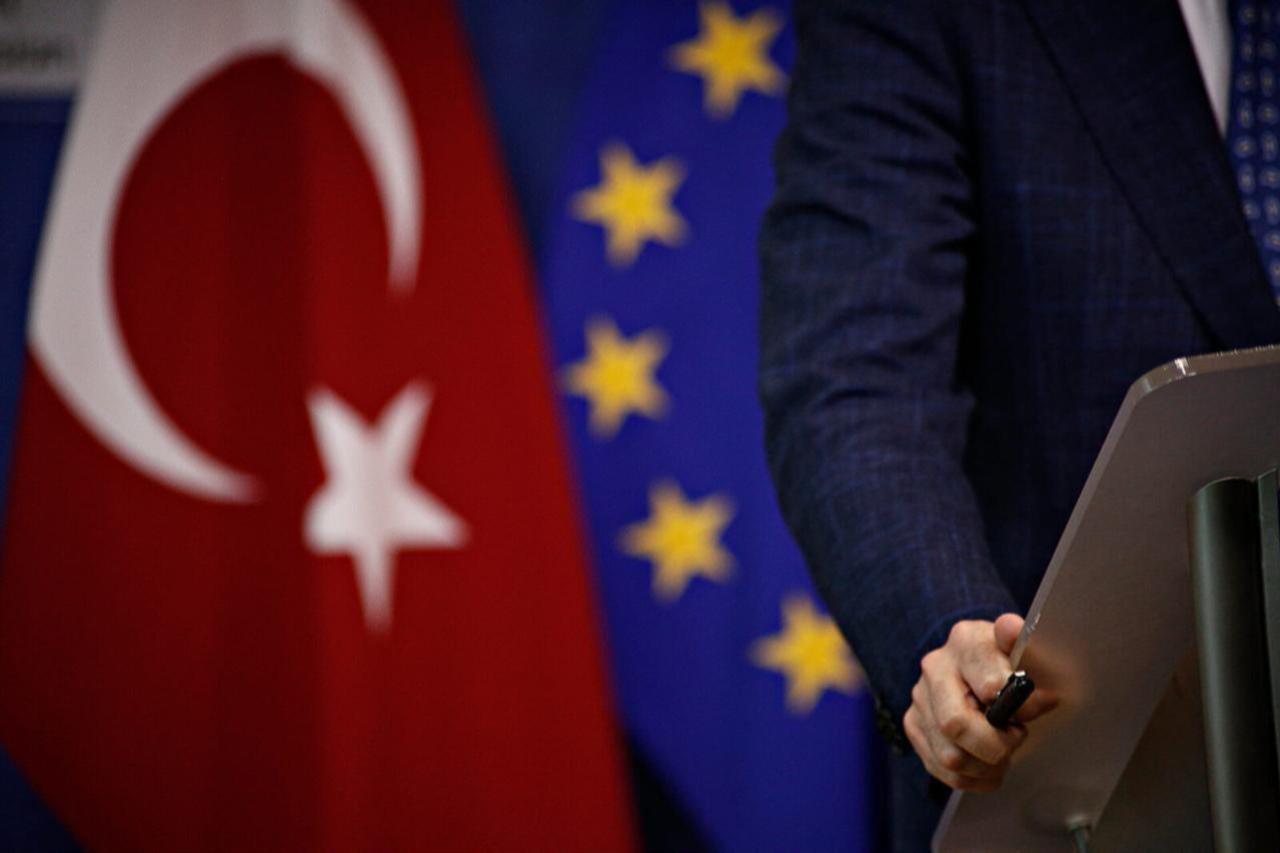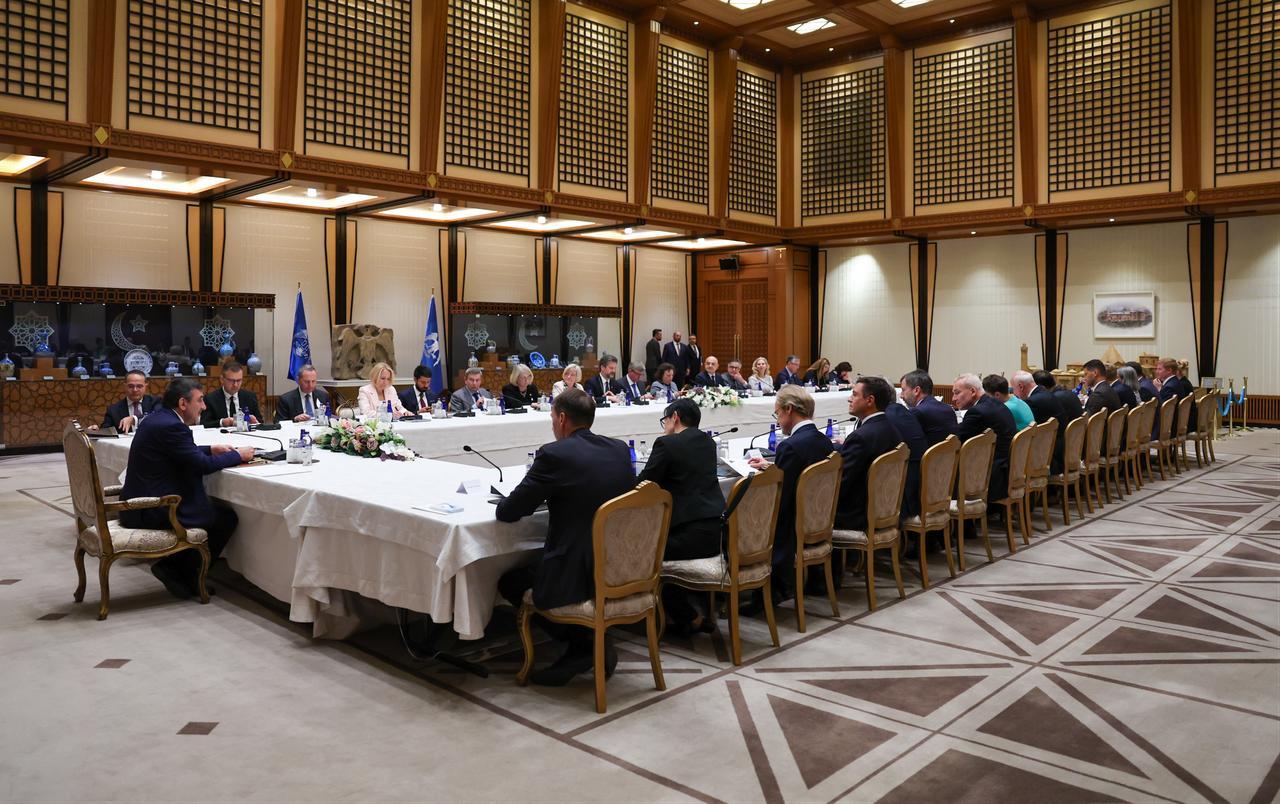
Turkish Vice President Cevdet Yilmaz called for "concrete steps" in Türkiye-E.U. relations during a meeting with European Union ambassadors at the Presidential Complex on Monday, emphasizing the vital importance of positive agenda-building amid global uncertainties.
"Taking concrete steps in Türkiye-E.U. relations and creating a positive agenda during this period of increasing global uncertainties is of vital importance both for E.U. member countries and our region," Yilmaz said in a social media post following the meeting.
The vice president received E.U. Türkiye Delegation Charge d'Affaires Jurgis Vilcinskas and member state ambassadors to discuss the war in Ukraine, humanitarian crisis in Gaza, regional instabilities and growing uncertainties in the global economy.
The agenda covered E.U. enlargement policy, customs union modernization, visa liberalization process, cooperation in energy and transportation, irregular migration management, and security and defense issues, Yilmaz stated.

Yilmaz highlighted Türkiye's strategic position and economic strength in his remarks to the European diplomats.
"With our dynamic population of 85 million, our strong economy, and our strategic, political, economic and cultural sphere of influence extending from the Middle East to Africa, from the Balkans to the Caucasus, we will continue to work together with Europe, our largest trade partner, for our common future," he said.
The meeting included Deputy Foreign Minister Mehmet Kemal Bozay, indicating the high-level importance Ankara places on E.U. relations.
The discussions come as Türkiye continues to position itself as a mediator in regional conflicts while maintaining its longstanding E.U. membership candidacy, which began in 1999 with formal negotiations starting in 2005.
Yilmaz emphasized that deepening instabilities in the surrounding region make Türkiye-E.U. cooperation increasingly critical for both sides.
The customs union update, in place since 1996, remains a key priority for Ankara as it seeks to modernize the agreement to include services, agriculture and public procurement sectors currently excluded from the existing framework.
Türkiye and the E.U. maintain significant economic ties, with the bloc representing approximately 41% of Turkish trade despite political tensions that have periodically strained relations.